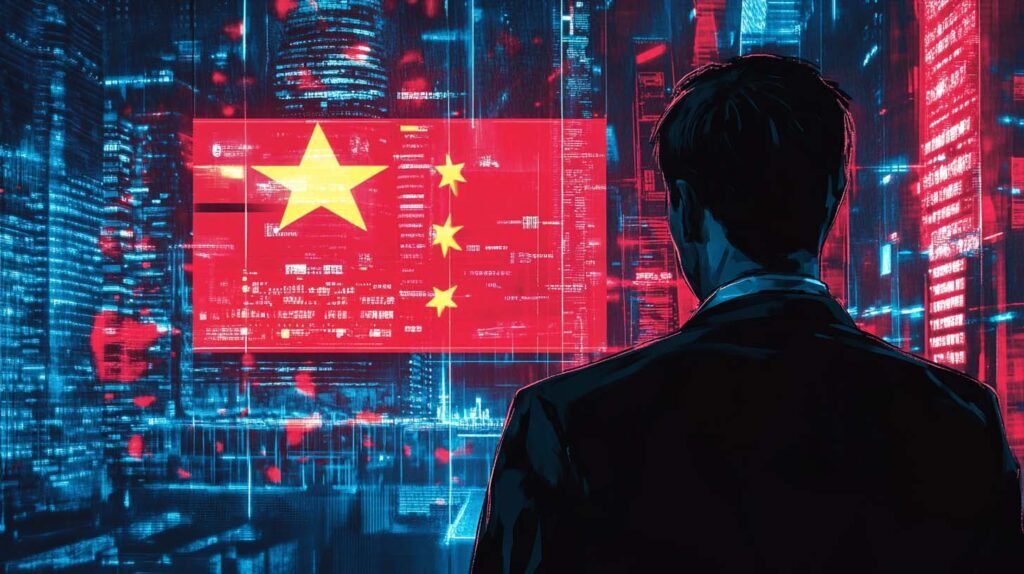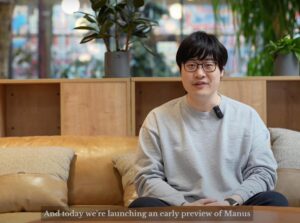Confronting the Fear of DeepSeek and China’s Tech Progress

Rising Tensions in Technology
In recent years, advancements in technology from China have garnered both admiration and concern worldwide. The emergence of DeepSeek, a Chinese AI model, has become a significant point of discussion, illustrating a blend of fascination and anxiety regarding China’s technological capabilities.
Perception of Technological Progress
The way the United States views China’s rapid technological progress is marked by a mix of fear and competition. A recent panel at the University of Michigan’s Digital Studies Institute explored these growing tensions in the global technology landscape. Experts pointed out that as China aggressively integrates advanced technologies into critical sectors like healthcare and security, many in the West regard this swift pace with unease.
According to journalist Jeff Yang, author of "Golden Screen," China’s speed in adopting innovative technologies raises alarms in the West. "China is fearsome not just because it’s innovating but because it seems to be going much faster down that route of integrating technologies," Yang noted. This disparity in perception contrasts sharply with the tech enthusiasm found in Silicon Valley. When China’s advancements echo similar ambitions, they often stir fears of an existential threat to Western dominance.
Shifting Narratives on Innovation
DeepSeek is emblematic of this tension, as it challenges the conventional view of China as merely a manufacturing powerhouse. Tara Fickle, an associate professor of Asian American studies at Northwestern University, describes DeepSeek as a symbol of innovation. She highlights how its development creates "cognitive dissonance," particularly as it defies expectations regarding China’s role in global technology.
Fickle’s observations indicate a significant shift: China is not just catching up; it is leading in certain fields, which unsettles the narrative of Western technological supremacy. This change forces a reconsideration of how innovations from China are perceived.
The Influence of Techno-Orientalism
Adding depth to this discussion is the concept of "techno-Orientalism." Fickle explains this term refers to how Western societies often view East Asia—particularly China and Japan—through a blend of fascination and fear. This view can lead to a perception of these nations as both futuristic and dehumanizing. In a way, China becomes a reflection of Western anxieties about what the U.S. might become or could have been. These concerns manifest in fears related to data privacy and mass surveillance, especially as technological successes like DeepSeek remind the West of China’s economic vigor.
Historical Context of Fear
Ian Shin, an assistant professor of American culture at U-M, provides a historical perspective on these fears. He points out that tensions between the U.S. and China have historical roots, where foreign innovations have often sparked nationalistic backlash. A notable instance is the case of Vincent Chin, a Chinese American who was murdered in the 1980s amid fears that Japan’s automotive industry was surpassing that of the United States.
Shin’s insights help frame the current anxiety toward China’s technological achievements within a broader context of historical fears and competition. These concerns often arise from a reluctance to fully accept the implications of innovations coming from a perceived ideological and economic rival.
National Security and Racial Implications
Discussions around technological progression often weave into national security concerns. Shin argues that the U.S. government frequently uses the concept of national security in a manipulative way, promoting a zero-sum mentality where one nation’s growth is viewed as another’s loss. He suggests that a more cooperative approach to security, emphasizing interdependence and shared progress, would be more beneficial.
Yang, adding to this conversation, highlights how these national security narratives often lend themselves to xenophobia and discrimination, particularly against Asian Americans who may be unfairly subjected to surveillance and suspicion. The fear surrounding China’s technological advancements can unintentionally reinforce harmful racial stereotypes and increase societal paranoia.
Fickle warns that the rise of AI brings additional complexities to discussions about national security. She calls for critical thinking and improved digital literacy to navigate these challenges more effectively. However, she cautions that simply displacing these concerns onto other nations, particularly China, detracts from addressing the underlying issues head-on.






